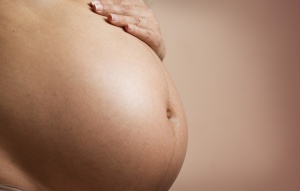Buenos Aires October 01, 2018 – Within the framework of the project “Improving the capacity and use of maternal health measurement (IMHM)”, the IECS was convened by the Women and Health Initiative (for its acronym in English, W & HI) of the Biomedical Engineering faculty at Harvard University to work in conjunction with the School of Public Health of the University of Ghana and the Population Council (India) in research on innovative maternal health indicators in Argentina, India and Ghana. 
The researchers will select and test nine of the 25 core indicators that were developed in a previous stage of the project. Each of the partners in this research will use a combination of methods, summarized in a shared working protocol, to test and validate the indicators in their environment. The national contexts of the partners in this project represent a mix of regions (Asia, Africa and Latin America/Caribbean), national maternal mortality rates, health systems and available resources.
As Dr. Niranjan Saggurti, a member of the Population Council of India, points out, this research “comes at a time when there is less monitoring of the experience [of social determinants of health] at the national level in many countries, including India, so it is an important contribution at a global level.”
While the primary goal of the IMHM project is to further develop these indicators for the benefit of all countries, the researchers quickly noted the additional benefits of their participation in the project for their own countries. For example, Dr. Richard Adanu of the University of Ghana, explains: “Ghana's maternal mortality rate has remained high despite numerous efforts during the Millennium Development Goals (MDG) and Sustainable Development Goals (SDG) that have aimed to reduce it. As a training institution tasked with training health personnel for the Ghana Health Service, being part of the IMHM project creates a new dimension of knowledge that can be shared with health service personnel. Participation in the IMHM project is expected to raise awareness of new dimensions of maternal health, where not much has been done in Ghana.”
“The development of a set of new and validated indicators is perceived as a high priority in Argentina and will contribute to improving both the quality of information systems and the decisions of policy makers,” says Eduardo Bergel, IECS researcher, who will work in this project together with Mabel Berrueta, coordinator of the Department of Research in Mother and Child Health, and researcher Verónica Pingray.
By working closely and regularly sharing information and lessons learned, research partners will benefit from each other's experience and expertise. For example, both Argentina and India are large countries with great variability in resources and results from one region to another. This variability in the country is a challenge that the IECS and Population Council teams hope to address. For Dr. Saggurti, “the diversity in availability and robustness of data will make this type of research a challenge in India,” while for Dr. Bergel, “the autonomy of the different provinces in Argentina could influence how the different indicators are compiled.” Ideally, IECS and Population Council teams will be able to share their experiences overcoming this challenge to support each other's work.

